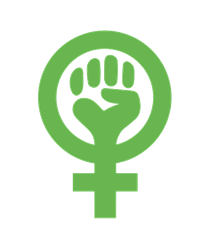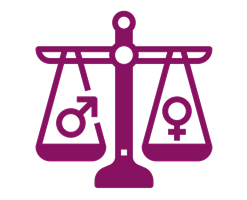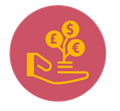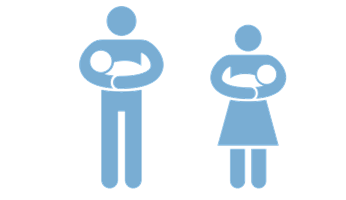NEWS
Thursday 10 March 2022
Every March we mark International Women’s Day. And while there is, no doubt, growing recognition of the positive outcomes true gender equality in the workplace can bring, are we – even today – supporting women through all their life stages in a way that ensures they reach their full potential?
Diversity, equality and inclusion have risen up the corporate agenda significantly over the past decade. Also, an increasing focus corporate social responsibility (CSR) has added to the pressure on corporates to ensure that what they say publicly is also what they practice internally. These policies are no longer a ‘nice to have’ they are a ‘must’ for any multinational business.
As momentum has grown, clients, suppliers and future employees are increasingly interested in and concerned about how multinationals address the specific needs of their female workforce, young and old, from starting their careers to senior management.
From mentoring programmes, fertility treatments, help with work-life balance, specific childcare provision and support through the menopause – these types of targeted initiatives, increasingly reflected in new and evolving employee benefits, have become a differentiating factor for forward-thinking multinationals looking to attract and retain talent and promote an inclusive culture.
But challenges clearly remain. For example, in one UK survey of 3,800 women, 99% said the menopause had a negative impact on their careers. Most of those surveyed (60%) said their workplace offered no support.2 Until recently menopause wasn’t even talked about openly by many women – let alone in the workplace.
So, while great advances have been made to address some of the issues, for many there is still an awfully long way to go – particularly when research also shows that the bulk of childcare, elderly care and household care still falls to working women.
And so, in a world which perhaps isn’t moving quite fast enough, what are corporates doing to really invest in their social responsibilities? What does ‘best practice’ look like? How are large corporates and multinationals enabling and supporting women at work and ensuring there is true equality of opportunity?
One UK survey found that 99% of women said the menopause had a negative impact on their careers. Most of those surveyed (60%) said their workplace offered no support.
A $13 trillion boost
McKinsey Global Institute’s Power of Parity study estimates that, with stronger female participation in the economy, global GDP could see a US $13 trillion-boost by 2030.1 It added: “In a gender-regressive scenario in which no action is taken to counter these effects, we estimate that global GDP growth could be $1 trillion lower in 2030 than it would be if women’s unemployment simply tracked that of men in each sector.”
A duty of (child) care?
Women are still far more likely than men to look after family members, such as children and the elderly. Employers are recognising this more and more, with dedicated benefits and allowances, but the challenge remains.
 One study found women are eight times more likely than men to look after sick children or manage their children’s schedules.3 Another found that family care responsibilities limit the ability of female entrepreneurs, with women twice as likely as men to mention family responsibilities as a barrier to starting a business.4
One study found women are eight times more likely than men to look after sick children or manage their children’s schedules.3 Another found that family care responsibilities limit the ability of female entrepreneurs, with women twice as likely as men to mention family responsibilities as a barrier to starting a business.4
This research also found that female entrepreneurs were hit particularly hard by the COVID-19 pandemic and that impact is exacerbated with the additional responsibility of caring for family. Female business owners are 17% more likely to struggle to balance a business with family life.5
Starting at the start – and leading from the front
To address the significant gender imbalances still present in the workforce generally and, more acutely, in senior and executive roles, many multinationals have developed dedicated gender equality programmes and mentoring initiatives.
But while such programmes have become more commonplace, achieving a satisfactory balance will still be hard. One piece of global research focusing on 2,000 of the most influential companies, for instance, found that one quarter did not have a single female executive.6 A separate study by Level 20, a not-for-profit dedicated to improving gender diversity in the European private equity industry, found that
just 10% of senior investment roles were held by women.7
It’s vital that young women starting out in their careers get to work with women in senior leadership roles – it not only encourages them to aim to follow in their footsteps, it leads to better equality and diversity, and that’s good for business. As such, making it easier for women to not only become leaders and but to remain leaders is key.
One piece of global research focusing on 2,000 of the most influential companies … found that one quarter did not have a single female executive.
A crucial part of challenge starts very early on – it’s about confidence. A Hewlett Packard report found that men apply for a job or promotion when they meet only 60% of the qualifications, women only apply if they meet 100% of them.8
However, get your mentoring and support programmes right, and the results can be impressive. One study found that 87% of mentors and mentees felt empowered by the relationship and reported greater confidence and career satisfaction.9 Mentees and mentors are also both promoted far more often (five times and six times, respectively) than those employees without mentors, so if you don’t have a mentoring scheme in place – particularly for your younger employees – you might want to think about that.
found that 87% of mentors and mentees felt empowered by the relationship and reported greater confidence and career satisfaction.9 Mentees and mentors are also both promoted far more often (five times and six times, respectively) than those employees without mentors, so if you don’t have a mentoring scheme in place – particularly for your younger employees – you might want to think about that.
Challenging under-representation at higher levels
Consultancy Willis Towers Watson, citing the World Economic Forum’s Global Gender Gap study, reported that the gender pay gap grew to 136 years from 99.5 years just before the pandemic. The firm said: “Our annual surveys on workforce analytics have found the pay gap is heavily driven by low female representation at higher levels in organizations.”10
Some of the strategies to address this include:
-
 establishing a culture of equity in the workplace. This can directly impact female employees’ sense of physical, financial, emotional and social wellbeing
establishing a culture of equity in the workplace. This can directly impact female employees’ sense of physical, financial, emotional and social wellbeing
-
 articulating flexible work options that are tied to the framework can open potential career opportunities that meet employees’ work-life considerations
articulating flexible work options that are tied to the framework can open potential career opportunities that meet employees’ work-life considerations
-
 improve female employees’ financial confidence and resilience through financial education programmes with targeted coaching, designed on top of flexible work options.
improve female employees’ financial confidence and resilience through financial education programmes with targeted coaching, designed on top of flexible work options.
The consultancy added: “As organizations build their flexible work strategies, they can integrate lessons learned from the pandemic about the psychosocial challenges of a hybrid work-life experience. For example, our 2021 Emerging from the Pandemic Survey found that caregiving demands are a top cause of anxiety and depression among working mothers.”
Maternity leave and dedicated parental care
One of the major life stage challenges faced by women is pregnancy and maternity leave. Historically, many women faced leaving a career or giving up work entirely to start a family. Thankfully that is no longer the case. But while corporations worldwide have sought to improve maternity – and paternity – benefits, with widespread improvements in programmes and flexible working options allowing for more home working, maternity leave and longer-term childcare remains a major factor for many women.
For example, a recent study found that around half of women believe that taking maternity leave has harmed their professional lives. Many said they had also faced microaggressions at work during their pregnancy, such as judgement for taking time off for maternity appointments.11
The survey also asked women if they had felt any type of barrier or glass ceiling at their workplace. Almost half said there was, while a third said it had affected their career. Dr. Yehia Nawar at London South Bank University, who carried out the survey, said: “This survey revealed that glass ceiling still occurs in the UK and that women find difficult to reach top managerial positions due to… organizational culture and maternity.”11
The survey also asked the women if they had felt any type of barrier or glass ceiling at their workplace and almost half said there was.
And multinationals need to change attitudes to paternity leave and shared parental leave. While many companies worldwide now offer both – take up is, if anything, in decline. Only a third of men in the UK take their paternity leave allowance of two weeks and attitudes towards shared parental leave are concerning with men taking this up being made to feel like they’re ‘weird’ or that their careers will suffer.12
 This, of course, does not help women in the workplace. Earlier this year, researchers from Georgetown University in Washington DC studied the way having children “traditionalised” many couples’ division of labour – long after women have made huge advances in education and the workforce. However, it’s not all doom and gloom – one type of policy appeared to nudge the balance: a form of enhanced paternity leave known as “a father’s quota” – a chunk of leave that a couple loses unless the father takes it, had a much better uptake.12
This, of course, does not help women in the workplace. Earlier this year, researchers from Georgetown University in Washington DC studied the way having children “traditionalised” many couples’ division of labour – long after women have made huge advances in education and the workforce. However, it’s not all doom and gloom – one type of policy appeared to nudge the balance: a form of enhanced paternity leave known as “a father’s quota” – a chunk of leave that a couple loses unless the father takes it, had a much better uptake.12
Mentees and mentors are also both promoted far more often – five times and six times, respectively – than those employees without mentors.
Taking a pause to consider the menopause
And of course, then there is the menopause! A topic that will affect 50% of the world’s population but has only recently become one of the more talked-about issues in the context of work and women.
Most women will experience at least some symptoms that makes their working lives less manageable. Many will experience severe symptoms – potentially over a number of years – that can seriously affect their belief in their ability to do their jobs and their energy to do so. Multinationals really need to think about how they handle this.
In an indication of the scale of the issue a report from venture capital firm Female Founders Fund identified responding to the needs of women experiencing menopause as a “$600bn-plus opportunity” for companies.13 It’s therefore clearly not just a female issue – it’s a business issue.
A major UK survey by specialist Dr Louise Newson commissioned by the not-for-profit company Newson Health Research and Education of 3,800 UK women found some worrying results – often affecting women at the peak of their careers.14
-
Almost all (99%) of respondents said their perimenopausal or menopausal symptoms had led to a negative impact on their careers, with more than a third calling the impact ‘significant’.
-
59% had taken time off work due to their symptoms: 18% were off more than 8 weeks.
-
Reasons for taking time off included reduced efficiency (45%), poor quality of work (26%) and poor concentration (7%).
-
Half (50%) of those who took at least 8 weeks off work resigned or took early retirement.
-
Overall, one in five (21%) passed on the chance to go for promotion they would have otherwise considered, 19% reduced hours and 12% resigned.
-
60% said their workplace offered no menopause support.
-
Just 5% of women who had a sickness certificate issued for time off work had ‘menopause’ cited on their certificate, while more than a third had ‘anxiety’ or ‘stress’ documented.
Next steps – what can businesses do to help?
How can businesses help empower their female workforce and benefit themselves as well as the global economy? Effective mentoring programmes and gender audits, with a view to building fairness in the workplace and true equality, should be further elevated up the corporate agenda.
They have already become fundamental aspects of most CSR programmes at multinationals and large corporates but could more be done? 67% of respondents to our 2019 research of male and female employees said they believe that organisations need a gender equality audit yet only 27% said they actually have one of these in place.15
With stronger female participation in the economy, global GDP could see a $13 trillion-boost by 2030.
Women in the Workplace, the largest study of women in corporate America, conducted by McKinsey in partnership with LeanIn.Org, provides an overview of HR policies and programmes including HR leaders’ sentiment on the most effective diversity, equity, and inclusion practices.16
Some of the take-aways from the 2021 report included:
-
Make work more sustainable – a sustainable pace of work is essential to helping mothers, senior-level women, and all employees.
-
Reset norms around flexibility – COVID-19 has made it much harder for employees to draw clear lines between work and home, and many employees feel like they are “always on”.
-
Take steps to minimise gender bias – the pandemic may be amplifying biases women have faced for years: higher performance standards, harsher judgment for mistakes, and penalties for being mothers and for taking advantage of flexible work options.
-
Adjust policies and programmes to better support employees – companies should make sure employees are aware of the full range of benefits available to them. There’s a significant gap between what companies offer and what employees are aware of.
- Strengthen employee communication – open and frequent communication with employees is critical. Research shows that this kind of openness and understanding reduces anxiety and builds trust among employees.
Comprehensive workplace equality is not a women’s issue, it’s an issue for everyone, and a very significant business issue. Multinationals can get ahead of this by offering mentoring for young women with their more senior female colleagues – providing a role model can help build confidence and enable young women to see a way forward. And don’t discount the role of senior men acting as mentors and champions of gender equality – as we’ve mentioned, this is an issue for everyone.
Making sure flexible working policies don’t discriminate can help everyone – if men feel they can take advantage of them without it hurting their careers, it helps female employees not to have to fall into traditional gender roles. And while women do continue to be more likely to take advantage of flexible working – make sure they don’t suffer from a lack of in-office ‘face time’.
And when multinationals do have a raft of talented women in senior roles, making sure there is a good understanding that the peak of their careers could well be accompanied by some physical and mental discomfort, could mean not losing them just at the point they have the most to offer.

1 Anu Madgavkar et al, McKinsey Global Institure https://www.mckinsey.com/featured-insights/future-of-work/covid-19-and-gender-equality-countering-the-regressive-effects (Sourced Feb 2022)
2 Anon, Balance-Menopause https://www.balance-menopause.com/news/menopause-symptoms-are-killing-womens-careers-major-survey-reveals/ (Sourced Feb 2022)
3 Maggie Germano, Forbes https://www.forbes.com/sites/maggiegermano/2019/03/27/women-are-working-more-than-ever-but-they-still-take-on-most-household-responsibilities/?sh=3a2532c452e9 (Sourced Feb 2022)
4 Anon, Santander Breakthrough https://www.santanderbreakthrough.co.uk/inspiring-your-success/how-mentoring-can-help-you-and-your-business/santander-breakthrough-women (Sourced Feb 2022)
5 https://www.santanderbreakthrough.co.uk/inspiring-your-success/how-mentoring-can-help-you-and-your-business/santander-breakthrough-women
6 Jennifer van Beek, Samantha Ndiwalana, World Benchmarking Alliance https://www.worldbenchmarkingalliance.org/news/its-a-mans-world-men-still-dominate-the-most-influential-companies-in-the-world/ (Sourced Feb 2022)
7 Anon, Level20 https://www.level20.org/ (Sourced Feb 2022)
8 Jack Zenger, Forbes https://www.forbes.com/sites/jackzenger/2018/04/08/the-confidence-gap-in-men-and-women-why-it-matters-and-how-to-overcome-it/?sh=5f6d0a543bfa (Sourced Feb 2022)
9 Andie Kramer, Forbes https://www.forbes.com/sites/andiekramer/2021/07/14/women-need-mentors-now-more-than-ever/?sh=170a7162bbdc (Sourced Feb 2022)
10 Rhonda Elcock and Shekar Nalle Pilli Venkateswara, Willis Towers Watson https://www.wtwco.com/en-GB/Insights/2021/09/how-flexible-work-can-improve-female-gender-equity-in-pay-and-career (Sourced Feb 2022)
11 Tony Truman, Phys.org https://phys.org/news/2021-09-pregnant-women-victims-microaggressions-workplace.html (Sourced Feb 2022)
12 Simon Usborne, The Guardian https://www.theguardian.com/lifeandstyle/2019/oct/05/shared-parental-leave-seen-as-weird-paternity-leave-in-decline (Sourced Feb 2022)
13 Anon, The Financial Times https://www.ft.com/content/5ed48a73-a75c-44d7-924d-b65eec28c64f (Sourced Feb 2022)
14 Jane Kirby and Will Maule, Oxfordshire Live https://www.oxfordshirelive.co.uk/news/uk-world-news/menopause-forces-women-leave-jobs-6056574 (Sourced Feb 2022)
15 MAXIS GBN research, conducted by Citigate Dewe Rogerson, May 2019
16 Anon, McKinsey and Company https://www.mckinsey.com/featured-insights/diversity-and-inclusion/women-in-the-workplace (Sourced Feb 2022)
This document has been prepared by MAXIS GBN and is for informational purposes only – it does not constitute advice. MAXIS GBN has made every effort to ensure that the information contained in this document has been obtained from reliable sources, but cannot guarantee accuracy or completeness. The information contained in this document may be subject to change at any time without notice. Any reliance you place on this information is therefore strictly at your own risk. This document is strictly private and confidential, and should not be copied, distributed or reproduced in whole or in part, or passed to any third party.
The MAXIS Global Benefits Network (“Network”) is a network of locally licensed MAXIS member insurance companies (“Members”) founded by AXA France Vie, Paris, France (AXA) and Metropolitan Life Insurance Company, New York, NY (MLIC). MAXIS GBN, a Private Limited Company with a share capital of €4,650,000, registered with ORIAS under number 16000513, and with its registered office at 313, Terrasses de l’Arche - 92 727 Nanterre Cedex, France, is an insurance and reinsurance intermediary that promotes the Network. MAXIS GBN is jointly owned by affiliates of AXA and MLIC and does not issue policies or provide insurance; such activities are carried out by the Members. MAXIS GBN operates in the UK through its UK establishment with its registered address at 1st Floor, The Monument Building, 11 Monument Street, London EC3R 8AF, Establishment Number BR018216 and in other European countries on a services basis. MAXIS GBN operates in the U.S. through MetLife Insurance Brokerage, Inc., with its address at 200 Park Avenue, NY, NY, 10166, a NY licensed insurance broker. MLIC is the only Member licensed to transact insurance business in NY. The other Members are not licensed or authorised to do business in NY and the policies and contracts they issue have not been approved by the NY Superintendent of Financial Services, are not protected by the NY state guaranty fund, and are not subject to all of the laws of NY. MAR00988/0322